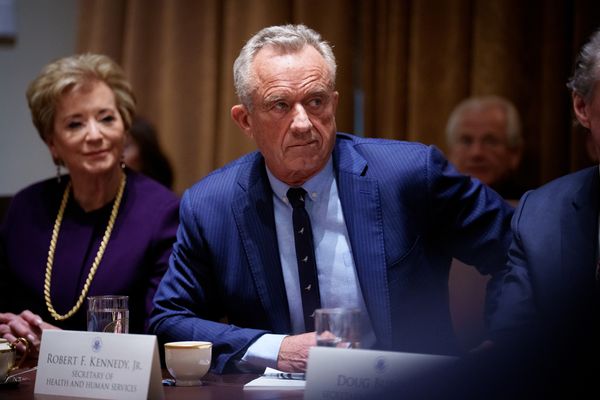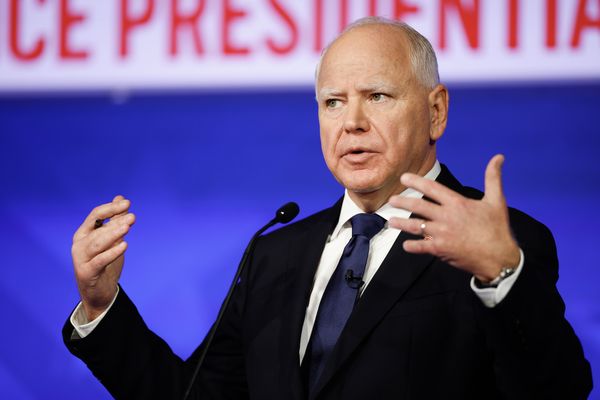President Trump on Wednesday said for the first time that he would allow a rescue of embattled Chinese telecommunications company ZTE only if China agrees to a range of trade concessions, contradicting several of his top advisers who had said that the firm would be dealt with separately.
Trump’s comments, made in morning Twitter posts, mark the most direct linkage he has made between helping ZTE and extracting concessions from Chinese leaders on trade.
But the Twitter posts also included statements that appear at odds with what he or his aides had asserted in recent days about ZTE and the status of trade talks with China.
The biggest discrepancy came over whether ZTE would be dealt with individually or as part of a larger trade package with China.
“Nothing has happened with ZTE except as it pertains to the larger trade deal,” Trump wrote Wednesday in posts that also criticized CNN and The Washington Post for their coverage of the issue.
Although Trump explicitly linked ZTE’s fate to the trade talks, Commerce Secretary Wilbur Ross and others had previously insisted that ZTE would be handled separately.
“Our position has been that that’s an enforcement action separate from trade,” Ross said Monday at the National Press Club.
Trump’s statements Wednesday mark a new development in a sensitive and rapidly changing effort to deal with the Chinese telecom giant. On Sunday morning, in a different Twitter post, Trump wrote that he had instructed the Commerce Department “to give massive Chinese phone company, ZTE, a way to get back into business, fast.”
The Commerce Department in April imposed severe penalties on ZTE for breaking U.S. law and then lying about it to federal authorities. The company has admitted to violating U.S. sanctions by selling phones to North Korea and Iran.
ZTE makes cellphones that require U.S. parts, and the Commerce Department had blocked export of those parts to China as part of ZTE’s punishment. Many senior Chinese officials have demanded that the United States roll back its restrictions on ZTE, enraged about a punishment that imperils the company’s future.
U.S. intelligence officials think ZTE poses a U.S. security threat because its products could be used for spying or cyberattacks. Earlier in May, the Pentagon ordered bases to stop selling phones made by ZTE and Huawei, another Chinese company.
There were signs, however, that Trump’s willingness to bend to the demands of China’s leadership had prompted his top aides to back down from the Commerce Department’s punishment of ZTE.
On Monday, Ross said he was revisiting ZTE’s punishment in light of Trump’s demand.
Trump also contradicted Ross in multiple ways on the status of trade talks with China.
Trump said negotiations had not yet begun. In one of his Twitter posts Wednesday, he wrote that “there has been no folding as the media would love people to believe, the meetings haven’t even started yet! The U.S. has very little to give, because it has given so much over the years. China has much to give!”
Liu He, China’s vice premier, began meeting with White House officials regarding trade on Tuesday, continuing discussions that began in earnest two weeks ago in Beijing.
Ross, Treasury Secretary Steven Mnuchin, National Economic Council Director Larry Kudlow and several other officials were in the Chinese capital earlier this month to discuss the large gap between how much China exports to the United States and how much it imports from U.S. companies.
But Ross, a longtime friend of Trump’s, said Monday that there had been “30 hours of negotiating” during the visit.
Trump also said the Chinese had not yet presented its demands, but Ross said Monday that the Chinese government had given him an explicit list of demands.
“Before landing in China, we sent them an extremely detailed list of our needs. And they responded with a similarly detailed — but as you can imagine, quite different — list of their proposals. The gap remains wide,” Ross said.
The United States is seeking a range of concessions from China as part of the talks, including an agreement to roll back tariffs on agricultural products and the approval of an acquisition involving the U.S.-based firm Qualcomm. But it’s unclear whether China will agree to structural reforms that are at the heart of the large gap between imports and exports as part of the talks.








